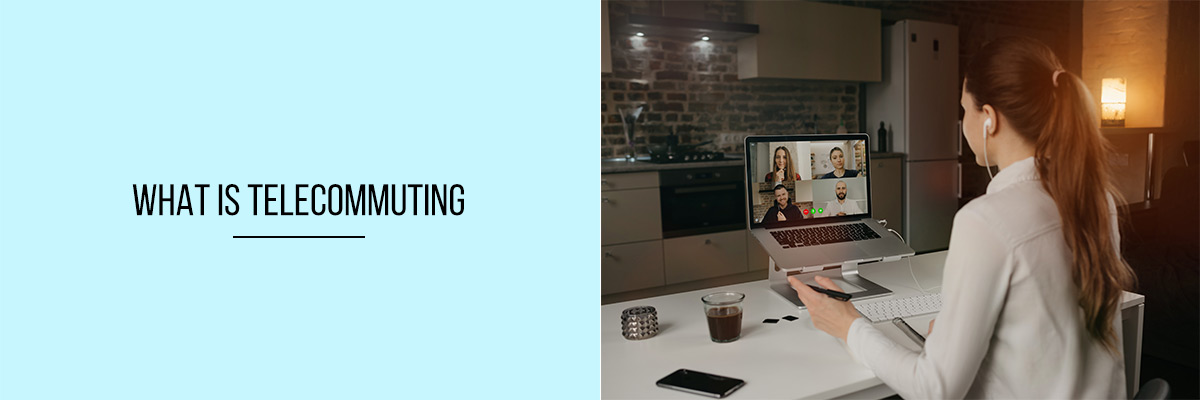The interchangeable terms “Remote work” & “Telecommuting” generally refers to different meanings. While remote work is performed by distant employees for companies without an office, telecommuting refers to part-time or full-time work from home, where the employee visits the central office on multiple occasions.
An increase in productivity levels while telecommuting is a key reason organizations are enabling employees to telecommute. Although it is proven to be effective and likely to succeed, avoiding legal pitfalls when employees work remotely is as much important. For this, you would require to learn more about telecommuting.
What is Telecommuting?
Telecommuting means working from home or any other location which is not the property of your employer. To telecommute, your work relies on tech gadgets to help you communicate with your colleagues and employer, and perform your daily tasks efficiently.
Telecommuting job applications are available in various industries such as customer support, local and digital marketing agencies, publishing agencies, and computer and software programmers, and it even extends to medical professionals.
How do employees telecommute?
With the advancement in technology, telecommuting has been made a lot easier, time-saving, and productive. With various chat applications, con-calls, data sharing platforms, and video conference call options, employees do not require to commute to work. They can perform their tasks from anywhere, with a good wifi connection and phone call service.
Modern technology allows you to stay connected to your colleagues and stay in touch with your employer. Although employees have to visit their offices for important meetings, now meetings can also be done through digital platforms.
What are the benefits of telecommuting?
The benefits of telecommuting can depend on employees. While there are numerous benefits, at times it could be detrimental too. If you like or your work requires you to work alone, then telecommuting is best for you. This allows you to save the time to commute to your workplace and also the fare to commute. In the meantime, you can utilize that commute time for some personal or professional work.
Being at the office means chit-chatting with your colleagues, sharing ideas, favoring your colleagues by reducing their workload, etc. Telecommuting has no such distraction, instead, it offers solitude to work peacefully and efficiently.
Telecommuting offers more flexibility to your work and personal life. It allows better time management and work efficiency, giving you time to perform some rejuvenating activities such as exercise or sports.
What are the disadvantages of telecommuting?
With all the benefits mentioned above, the disadvantages might be less comparatively, but for some industries which require time-based work and focus, it might be a red flag.
- Just as telecommuting saves you from the distraction of the office, you can get distracted by family members or roommates if working from home. Similarly, working from other remote places such as coffee shops, and libraries could cause some distractions.
- Another disadvantage would be for employers, as it can unplug employees from the loop, and would be difficult to keep up and stay updated with every employee telecommuting.
- Lastly, if your work requires socializing or you perform in isolation, then telecommuting can be detrimental to your productivity levels.
Conclusion
Organizations supporting telecommuting have a set of policies for their employees to follow. These are considered standard office policies, such as working hours, staying in touch, and meeting deadlines. And following these policies are mandatory for every employee.


